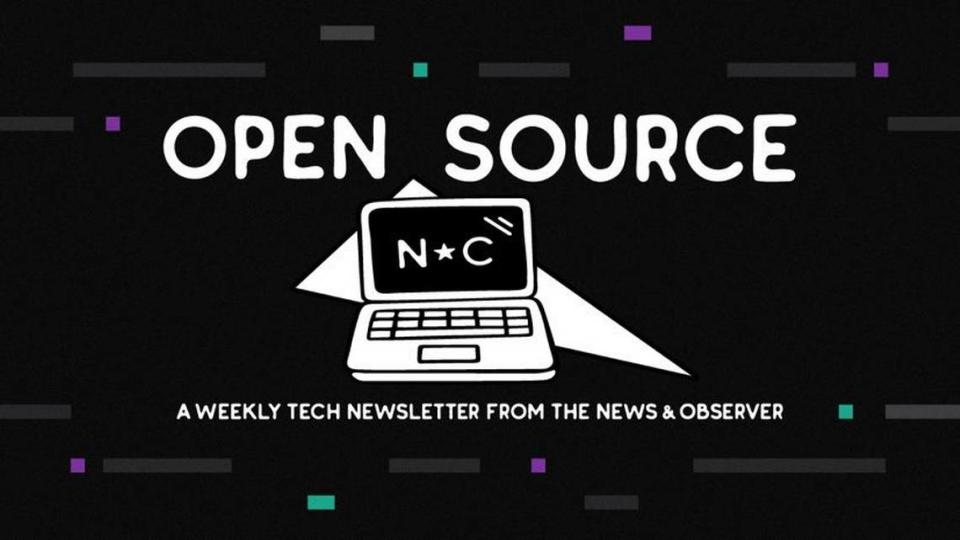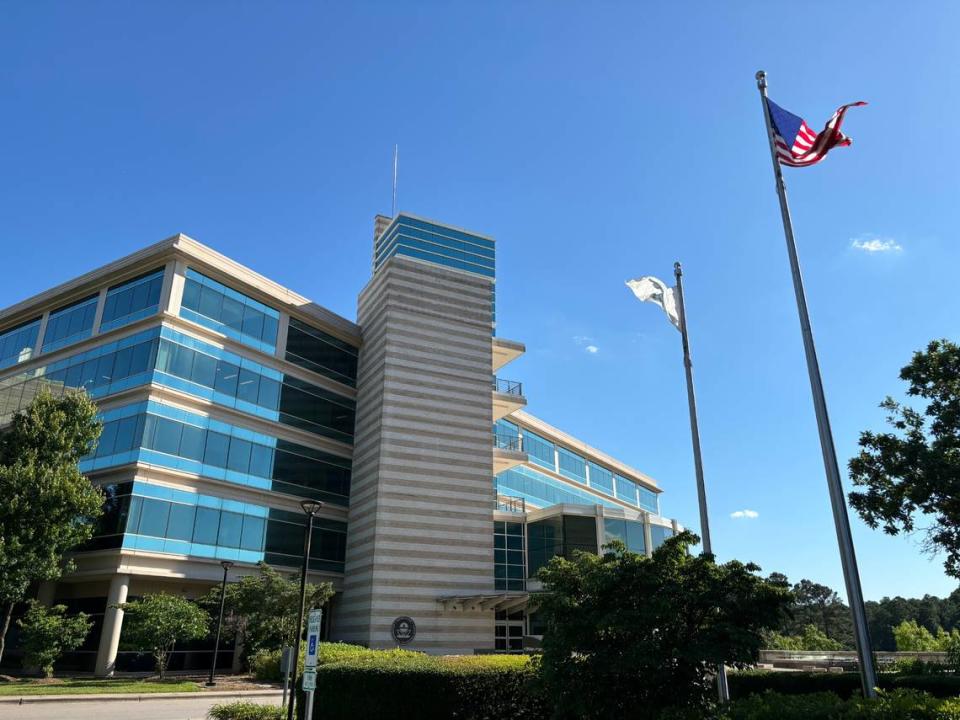Open Source: Major providers step in as 1 in 5 NC households lose federal internet relief
I’m Brian Gordon, tech reporter for The News & Observer, and this is Open Source, a weekly newsletter on business, labor and technology in North Carolina.
Two items of North Carolina internet news came this week from different ends of the spectrum.
On the niche side: Google Fiber has selected a handful of Durham and Cary homes to pilot 20-gigabit residential service, making the Triangle one of two places in the nation to have access to this enormous bandwidth inside homes. The other community is Chattanooga, Tennessee, which has service provided by the local city-owned utility. The North Carolina county of Wilson also provides its own internet service, which telecommunications companies then lobbied against to prevent other cities from doing the same. But I digress.
Google Fiber’s 20-gig service is an inaugural project from the company’s experimental division, GFiber Labs, which focuses on bleeding-edge technologies. It costs $250 a month, and households had to apply to receive it.
“We were picking customers who had really interesting use-cases for it,” Google Fiber head of product Nick Saporito said in an interview last week. “The Triangle was the first one to hit because our interest level was quite high there.”
Many households never use 1 gigabit of internet service, let alone 20, so practical uses of Google’s newest bandwidth offering are limited. Some remote workers performing data-heavy tasks, perhaps. Today’s computers aren’t always designed for 20-gig service anyway.
But Saporito believes introducing the tech now will “build a foundation for future use cases,” especially if and when AI becomes more integrated into home life.
Plus, some will simply always want the best tech available.
The second piece of internet news affects many more people. This month, 901,394 low-income North Carolina households stopped received $30 a month to pay for high-speed internet through the Affordable Connectivity Program. The ACP was created under the Bipartisan Infrastructure Law of 2021 but has stopped due to a lack of congressional funding.

In a White House statement last week, President Joe Biden urged Congress to extend ACP funding with $6 billion “so tens of millions of Americans can continue to access this essential benefit.” Biden also commended the more than dozen private internet providers who pledged to offer service at $30 or less to low-income households through the end of the year. The list includes major providers Spectrum, Verizon, Comcast, Cox and AT&T.
“We’re grateful these providers are stepping up,” said Nate Denny, the N.C. Department of Information Technology deputy secretary for broadband and digital equity. Denny called ACP an “essential program” and hopes more private providers “will help bridge this gap until Congress acts.”
According to the U.S. Census, there are 4.3 million households in North Carolina. That means this policy — whether carried on by public dollars or private commitments — affects roughly one in five households in the state.
Kennedy’s promise today
In 1960, then-Sen. John F. Kennedy wanted to win over the South to clinch the Democratic presidential nomination, but his Catholic faith gave many in the region pause.
So, he made a deal with North Carolina Gov. Terry Sanford: In exchange for Sanford’s support, Kennedy pledged to bring an environmental research complex to the state’s new, fledgling Research Triangle Park.
Fast forward to today: The Triangle is home to the U.S. Environmental Protection Agency’s largest campus by size. The complex, which employs more than 2,000 federal employees and contractors, focuses on air quality research and regulations. I got to tour the site last week as part of our NC Inside Look initiative.
The EPA has been a steady, if quieter, resident of the research park over the decades. And as RTP reimagines its purpose in the time of remote work, the agency’s hands-on labs still bring people to the office.

Clearing my cache
North Carolina’s Jimmy Donaldson (aka MrBeast) now has more YouTube subscribers than any other person or organization on the planet, with 273 million. Read about about the man, his plans, and the noise his team is making on and off the internet
A former Amazon worker in Raleigh has accused the e-commerce giant of disability-based discrimination, saying Amazon failed to provide her an American Sign Language interpreter during training at the local Garner fulfillment center — and then fired her. The state-designated advocacy group North Carolina Disability Rights filed the charge on the employee’s behalf last month to the U.S. Equal Employment Opportunity Commission.
The shipping company DHL plans to close a facility in Raleigh, affecting 120 jobs. In a WARN Notice, DHL informed the state it would shift operations to Charlotte.
The Triangle biotech firm restor3d announced Wednesday it had raised $55 million in a Series A funding round. The company uses 3D printing to customize orthopedic implants.
And because I’m legally obligated to discuss VinFast in every newsletter: The electric carmaker that may one day open a factory in North Carolina’s Chatham County has been sued over not paying rent at one of its California showrooms. According to the complaint, VinFast stopped paying in May 2023 and owes around $356,000. The company denied this claim in a statement to Reuters, asserting it instead had stopped paying rent this past April as part of “ongoing negotiations.”
The Vietnamese EV manufacturer arrived to the U.S. with a showroom-focused approach but has since emphasized dealership partners, like Leith VinFast in Cary.
Apple and Cary-based Epic Games have returned to court in their multiyear antitrust fight. At issue is whether Apple has complied with a 2021 district court decision requiring the company to let developers use alternative payment options besides Apple’s in-app purchase mechanisms (which levies a fee on big developers.) Apple did create a new path, but still set a 27% commission. According to The Verge, the judge overseeing the hearing hasn’t hidden her frustration with Apple.

National tech happenings
Nvidia’s market cap hit $1 trillion last year. In February, its value surpassed $2 trillion. This week, the California chipmaker (with a Durham presence) reached $3 trillion, briefly making it the world’s second-most valuable company.
The dizzying demand for AI chips hasn’t only benefited Nvidia, which designs them, but also the company that actually manufactures them. More than 90% of the world’s advanced semiconductor chips are made in Taiwan, and this week, Taiwan Semiconductor Manufacturing Company also hit a record high on the stock market.
Ending back where we started: The New York Times traveled to the Amazon to show how Elon Musk’s Starlink satellites have connected remote Indigenous tribes to Instagram, soccer highlights, and the modern experiences of high-speed internet.
Thanks for reading!
Enjoy Triangle tech news? Subscribe to Open Source, The News & Observer's weekly newsletter, and look for it in your inbox every Friday morning. Sign up here.


